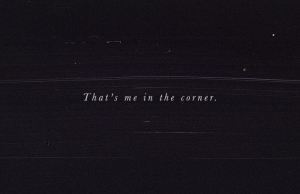Jim Palmer's Blog, page 32
May 4, 2014
What is our crime that separates us from God?
 Originally posted on Jim Palmer:
Originally posted on Jim Palmer:

“Sin,” “repent,” and “eternal life” are among the top words and phrases that have taken on a meaning in pop-Christianity that Jesus would have never endorsed or taught. It just underscores the power of groupthink – that if enough people believe something, they will reason that it must be correct.
What is our crime that separates us from God? As the pop-Christian theory goes, our crime is being human. We are told that we are born “sinners.” Insert the misinterpretation of the word “sin.” According to the theory, before we do anything… we are born as babies “in sin.” In other words, we don’t get a choice; by virtue of being born human, we are at the core, “sinners.” The theory further says that this state is disgusting and revolting to God, which is why God rejects and condemns us, has nothing to do with us, and sends us to…
View original 615 more words


May 3, 2014
3 things religious leaders say to scare and control you

I was asked a question yesterday in my AMA event that I wasn’t able to answer, and decided to address it here. The question had to do with how to dethrone the religious voices in your head that judge, shame, condemn, manipulate, induce fear, and seek to control you.
On your new-found path to freedom, here are 3 things you may hear from religious leaders to scare and control you:
1. “Self-realization is idolatry; you’re supposed to be worshiping God and not yourself.”
The truth is that self-realization is why you are here, and every step in your personal evolution brings glory to God. The image, likeness, and being of God is the fundamental. underlying, and unchanging nature and essence of who you are. The point of your human existence is to discover this and bring full expression to it through your humanity or human personhood. This is what Jesus did and was, which is why he said, “I am the truth.” Self-actualization is the most spiritual and scared endeavor of our human experience. The religious notion that your relationship with yourself and self-actualization is somehow a selfish pursuit and diversion from true godliness is a false notion that is not supported by Jesus or founded in the Bible.
2. “You are deceived. You are following false ideas that sound hopeful and beautiful but they’re darkness masquerading as light.”
You have to get straight in your head and heart that God and fear do not go together… ever. If you hear any religious teaching or idea and induces fear, dismiss it swiftly and entirely. God never stirs feelings of shame or fear to motivate people on the path of truth and freedom. The above condemnation is projection – you are actually exploring and embracing the truth. Meanwhile, the religious views that induce fear and shame are the teachings that are “darkness masquerading as light.” Come on; you’re smarter than that. Of course religious leaders who are intent on perpetuating the system aren’t going to take too kindly to people who challenge it. Freedom is a threat to people who would level the above condemnation. Just expect it. It might even get nasty.
3. “The Bible clearly states that you’re beliefs are wrong, and you are in danger of God’s judgment.”
Geesh! This one drives me crazy. Basically this erroneous view goes like this, “My interpretation of the Bible is the correct one… because I say so… so there!” There’s a saying that goes, “Just because it’s on the Internet, doesn’t mean it’s true.” Well guess what? Just because some religious leader tells you that the Bible means something, doesn’t mean that’s what it means. Just a cursory study of the history of Christianity shows a diversity of views on the most fundamental matters of the Christian faith. The notion that there is one “orthodox” view of Christianity that has persisted through time (and is therefore correct) is simply not true. Stop externalizing authority and repair your relationship with yourself. You already know the truth inside, and you don’t need anyone to tell you.


May 2, 2014
What “spiritual” is… is up to you
What makes you come alive?
What satisfies you most deeply?
What fills you up?
What brings you joy?
What centers you?
What is a source of delight and pleasure for you?
What areas, fields, or subjects are you interested in exploring?
What makes you feel connected to yourself?
What forms of self-expression are the most gratifying?
What would your sense of adventure tell you to do?
What way of being in the world resonates most deeply with your heart?
Where does your sense of curiosity take you?
How are you most compelled to aid the liberation of others?
Where in life are you inspired to be a tangible expression of love, acceptance, and compassion?
What nurtures a greater love for yourself and others?
The answers to these questions is a good place to start in determining what “spirituality” means for you.


May 1, 2014
Why “getting saved” won’t change you
“Jesus offered freedom but everywhere Christians are in chains.
It is because they were falsely led to believe that by adding Jesus to their lives by saying the “sinner’s prayer,” or “accepting Jesus as their savior,” or “becoming born again,” etc… that life would be complete. This is magical thinking. Jesus never said that he would save or free anyone. He did not say, “I will set you free.” His exact words were, “When you know the truth, the truth will set you free.” What sets you free? THE TRUTH.
Jesus never caused anyone to be saved. First off, you don’t need to be saved – not from God, not from yourself, not from sin. You do, however, need to cast aside your spiritual ignorance. But even this Jesus cannot do for you. It’s not something anyone can do for anyone else.
The idea of conversion transformation is yet another example of magical thinking that is pinned on Jesus. The idea is that if you “accept Jesus as your savior,” “get saved,” or become “born again,” then everything will instantly be fixed in your life. Jesus never said this. You couldn’t get any closer to Jesus than his first disciples and they were clueless half the time. Why? Because they would not accept, embrace, or walk in the reality of the truth Jesus taught and demonstrated. It’s the same then as it is now – you must embrace the truth in order to be free. There is no substitute for that – not even the nice-sounding Christian formulas.
In essence Jesus said, “I know the Truth, and the tools to end your suffering. Follow me.” And if people had a willing and earnest desire, and listened and applied the Truth that was given, transformation happened. Jesus came around and offered, “If you need that bolt loosened, here’s the wrench.” You can’t throw the kitchen sink at a problem and expect it to be fixed. You have to use the right tool to fix a specific problem.
We have a tendency to be offered a wrench to solve a problem, and we make a religion out of the wrench and worship it, and fight over who has the best wrench. In other words, we make it about the wrench rather than the problem for which the wrench was offered. Rather than worshiping the wrench, and wasting time and energy arguing it, simply use it for the problem it was given to solve. You are suffering. There is a tool to fix it.
Adding God or Jesus into your life isn’t going to necessarily solve anything. You’re going to have to apply the Truth and use the wrench.”
- Jim Palmer, Notes from (Over) the Edge


April 30, 2014
What is the “true” gospel?
There are some Christian leaders who disdainfully say that “the world has come into the church.” One such leader wrote, “Church, stop compromising with the world and stand up for the True Gospel of Jesus Christ!!!” However, the reality too often is that this so-called “True Gospel of Jesus Christ” is the very thing that has been corrupted by the religious minds of this world. Preaching that “gospel” IS the compromise. Any “gospel” that proclaims that human beings are inherently bad, and repulsive to, rejected by, and separated from God is not the true gospel.


His name was Jesus Christ (well, not exactly)
“Even the name “Jesus Christ” was an invention of organized Christianity.
Jesus’s Hebrew or Aramaic name was “Yeshua.” The name “Jesus” originates from the Latin translation of the Greek name Iēsous, which comes from the Hebrew “Yeshua.”The English equivalent would be “Joshua.” So we could just as easily call Jesus “Joshua.” So let’s do that.
As far as titles go, which were common at that time, Joshua preferred to be called “son of man” or “son of Adam,” which has the same meaning. Jesus’ name could have easily been known to us as, Joshua ben Adam. But instead, “Christ” (from the Greek word, Christós, meaning “anointed”) is a translation of the Hebrew word Māšîaḥ, and became used as a messianic title for Jesus. The title was chosen by his followers and written into the New Testament.
God is spirit and takes on human expression in people. Joshua ben Adam taught that all people must relate to God in the spirit of his name. Think of this in light of the name Joshua ben Adam. The “son of man” or “son of Adam” means a human one in solidarity with all human ones. In other words, relating to God in the name of Joshua ben Adam means we come to God in solidarity with all humankind. This was the way of Joshua. He once taught that if one comes to worship God with a sacrifice but discovers he is in conflict with his neighbor that he should leave his sacrifice at the altar and go make amends. On another occasion, Joshua challenged people to extend this line of solidarity to include even one’s “enemy.” He equated service to God as caring for the lowliest and least among them, and spoke of loving God and loving others as two sides of the same coin.
One can only relate to God in the name and spirit of Joshua ben Adam because God is inseparable from people. There is no “us” and “them.” Joshua ben Adam would reject any religion that advocates hatred, violence, and division against others. He once said that merely speaking a term of diminishment against another person is a violation of his way. And yet too often modern Christianity has fashioned a gospel that is built on demeaning humankind by asserting the idea that people are bad at the core, repulsive to God, and deserve eternal torment.”
Jim Palmer, Notes from (Over) the Edge


April 29, 2014
God is not a belief-system (refuting the things we commonly hear)
In Notes from (Over) the Edge I refuted some of the common things you hear in Christian circles, and compiled them into the below list:
“God is not a belief-system.
Jesus is not a religion.
Christianity is not a check-list.
Church is not an address.
The Bible is not a book of doctrines.
Community is not a meeting.
Grace has no exceptions.
Ministry is not a program.
Art is not carnal.
Women are not inferior.
Our humanity is not the enemy.
Sinner is not our identity.
Love is not a theory.
Peace is not a circumstance.
Science is not secular.
Sex is not filthy.
Life is not a warm-up for Heaven
The world is not without hope.
There is no “us” and “them.”
Tattoos are not evil.
Loving the earth is not satanic.
Seeing the divine in all things is not heretical.
Self-actualization is not self-worship.
Feelings are not dangerous and unreliable.
The mind is not infallible.”
My friend Patrik Olterman is breaking each of these statements down in a blog series that you might be interested in investigating.


April 28, 2014
That’s me in the corner (losing my religion)
People often contact me, and share their journey of shedding religion. The excerpts below are portions of emails people have sent me. I keep them all in a “Dear Jim” file.
“Overall, I have to say that I lost my individuality through my experience with organized religion…. I felt “forced” to fit in, to fit some type of mold or shape or way to be. I joined group after group looking for acceptance… I changed my appearance, my language, even some of the things I enjoyed I gave up in order to fit in. I lost me in the process, the real me. That has damaged me more than anything. Now I’m trying to find the real me.”
*
“I was and Evangelical for 27 years of my life. What I got most out of church was: read and pray every morning, go to church every Sunday and Wednesday, tithe (one church wanted a tithe of my student loans), be republican, it’s okay to joke about gays, liberals, and Muslims, Harry Potter is bad, but magic in Narnia is good, alcohol is bad, sex is bad, woman are inferior to men, the bible is just doctrine and theology, etc.”
*
“I learned intolerance at church. Church insisted that only THIS church has the right answers, and that any other church, even another Christian church, is to be avoided because they don’t have the whole Truth. Church taught me to be prejudiced. I learned at church that women are lesser beings than men, that only men were capable of teaching, leading or making important decisions. At church, I learned that God loves me less because I’m female. Organized Christianity insisted that I am a filthy, stinking, horrible, sinful person deserving of Hell. I’m less than worthless, and knowing so is a godly attribute. Church taught me to despise myself and be afraid of God. In church, I learned that a grand performance as the ultimate Christian is preferable to an honest confession of failure, and that the honest, broken people are shunned, gossiped of, and never forgiven.”
*
“Through a lot of thinking and reflection I have come to realize that the times I felt closest to God were not through all by business and conscious effort on my part but just the opposite. It was in the quiet still moments. It was while driving in my car or standing in line at at the check out counter. It was while staring at tree and seeing its branches move by an unseen force. It is in the quiet enjoyable moments and sometimes even in the daily mundane moments that I find myself growing closer and more aware of God. There is no magic formula to use or class to take. All I need to do is be open to Him and be His Love wherever I am.”
*
“For me, religious detox has involve a LONG, drawn out, painful, excruciating, lonely, heartbreaking, freeing, exhilarating, sometimes mind boggling, angry, happy, sad time in my life. It is confusing at times, totally clear at times. I mostly think I’m losing my mind. Unlearning everything I “learned” in the last ten years.”
*
When I really became honest with myself, I realized that my involvement with organized religion comprised of two main things – trying to figure out what the rules to be accepted were, and trying in futility to obey these rules. As much as I heard the popular rhetoric, “it’s about relationship, not rules” I realized that this was, for the most part, just talk. It was about rules, always was, always will be. This is the crux of religion. Yeah, on the surface, it did not seem this way. The last organized church I was part of regularly had a very casual and dress down style. It was not uncommon to see people coming to church in shorts and flip flops on the Saturday evening service that I attended, and the praise team usually incorporated secular songs that could have a spiritual interpretation into their routine. But after I got really involved in the church, I realized that there were some who were more acceptable than others….The straw that broke the camel’s back for me, however, came when I opened up to an influential church member about some personal struggles in my life…I have struggled with an addiction to porn for some time now and I know it is wrong. I have done everything in my power to rid myself of this addiction from prayer to Bible study, group sessions therapy, support groups, and even demon deliverance services. But I was given the added implication by this influential church member that I struggled because I was not dedicated enough to God, not persistent enough, not faithful enough.”
*
“I was taught that this God who loved me demanded perfection and nothing short of perfection could please him. Since I could not be perfect, he would accept Jesus’ perfection in my place. Since I deserved to be killed and then eternally tortured, he’d take Jesus in my place for that, too. He could only bear to look upon me if he saw me wrapped up in Jesus’ bloody body. I get the image of a wolf literally wrapped in a sheep’s carcass when I think of those days.
Serving this type of perfectionist and schizophrenic God made me fearful, demanding and judgmental myself. I knew that even my love for him was a sham because how can you love a monster who creates a helpless, sinful creature then tortures it for being exactly what he created it to be? How can you love in “free will” someone who says “Love me or I’ll send you to hell for eternity.” How others around me could love this god made me feel inferior and evil. I knew that even though I had done the right things, said the prayer, gotten baptized, even spoke in tongues that I hadn’t really appeased him because I could never truly love him, only fear him.”
That is how I was most hurt by organized religion. Organized religion presented me with the picture of a schizophrenic, perfectionist, masochistic God and demanded that I love an unlovable tyrant.”
*
“Leaving the church and more recently, just giving up on the whole damn thing. I am now an open minded agnostic vs. a liberal minded Christ follower. I still think Love is the most important thing but I don’t know if God and Love are the same.”
*
“I just got tired of wearing the ‘Christian mask’. Sick of it, actually. I grew up in a conservative evangelical household where we read the Bible, went to church on Sunday and I attended the youth group. We were all expected to talk the same, pray the same, interpret scripture the same, and above all else, vote the same. It was more like we were members of some spiritually exclusive club. Yet I experienced deep loneliness. As my disconnect grew, I started to look outside organized religion and evangelical settings for some answers. I just wanted to be emotionally whole, but when I brought my issues up I was told to read more scripture. When my father found out I was looking for answers elsewhere, he told me I was going to Hell if I believed anything other than how I was raised (a nice conversation starter, huh?). Anyway, that was the day I left the institutional church and it became the first day of Freedom. I’ve never looked back. I don’t hold grudges against other Christians but my crap-detector goes off immediately when I meet anyone who’s wearing the ‘Christian mask’. I consider myself a follower of the teachings of Jesus and I strive to be like Him. The term ‘Christian’ carries too much baggage for me.”
*
“I’ve had many people question my “Christianity” over the past few years because my ideas don’t fit into their boxes. So to me, being a Christian has nothing to do with doctrines, even beliefs about Jesus himself. Whether or not somebody believes he was just a dude, was God, or didn’t even exist at all doesn’t matter to me. I’m more interested in following the recorded faith of Jesus, rather than the faith about Jesus.”
*
“Religious detox over all has been lonely as I am leaving much of my illusional security I collect over the past 30 plus years. I am developing my own personal life with Jesus and has little of the clichés and patterning that I so easily embraced. I kinda like it!!”
Bible knowledge does not equal wisdom
It can be very threatening for some people to question and deconstruct their belief system. This is largely because they have wrapped their identity and security in that system. For that reason we should have compassion; it is quite difficult to look objectively at or apply critical thinking to one’s beliefs when a person is attached to them in this way. Let this be a lesson to not replace old beliefs with new beliefs, and then become attached to your new beliefs. Begin by questioning the whole premise that the path is about swapping one belief for another.
It makes complete sense in modern Western culture to anchor one’s religion or belief system in a book such as the Bible. But it should be noted that Jesus himself did not espouse this view. Jesus chastised the religious leaders of his day for burying their noses in their sacred text, and missing the plain and simple truth that was right before them and in them. The Bible has extraordinary spiritual value but it was not meant to be the source of our spiritual reality. Jesus taught that the source was the Spirit or true Self within us. In some sense, people who are attached to the Bible the way they are is not a “spiritual” thing but a cultural one.
Throughout history and spanning the the world, people have related to the Bible in many different ways. It would be a gross misrepresentation of even Christian history to say that there is only one way to view or relate to the Bible. If someone comes around and starts laying on you some big sermon about how you should understand or relate to the Bible, keep in mind that they are only expressing their subjective view, which has been shaped by their culture, including their narrow religious sub-culture.
Just because people have significant Bible knowledge does not mean they are any wiser for it. This was part of the point Jesus was making when he challenged the religious leaders of his day.


April 27, 2014
They said I’d never run again (I remembered as I crossed the marathon finish line)
Some of you know that I am an endurance athlete, but 2010 changed all that when I had two NDE’s.
Yesterday, I ran my first marathon since 2010…
my first marathon since that night when I was miraculously pulled out from an upside-down car barely alive,
my first marathon since I was told that I would never run again,
my first marathon since hearing all those you-really-shouldn’t-do-this speeches.
Yeah, that marathon! It was the Country Music Marathon in Nashville.
I ran the marathon thinking of all of you who have been told all the reasons why you can’t do something or be something. For all of you who have heard you’re not…
strong enough,
smart enough,
worthy enough,
young enough,
thin enough,
good enough…
It was you I was thinking about, especially starting around mile 20.
Here’s the truth: YOU are enough! You get to define who you are, and create the life you want to live. Who’s going to stop you? Nobody can but you. Whatever you’ve been told, you have the power to flip the script. I know it’s not easy, and was reminded of that yesterday during stretches of the race that were difficult. I had at least 5 good reasons why I shouldn’t have run yesterday’s marathon. I’m not at the elite level of fitness I was back in my ultramarathon days… blah, blah, blah, blah.
So!
Yesterday, I had a fight to pick with 26.2 miles. I did it. I crossed that finish line, and I could have run another ten miles it it had been necessary.
It was a great experience running the Country Music Marathon! The race was also a benefit for St. Jude. No family with a child receiving care at St. Jude ever get a bill. It did my heart good, knowing that crossing the finish line was.















